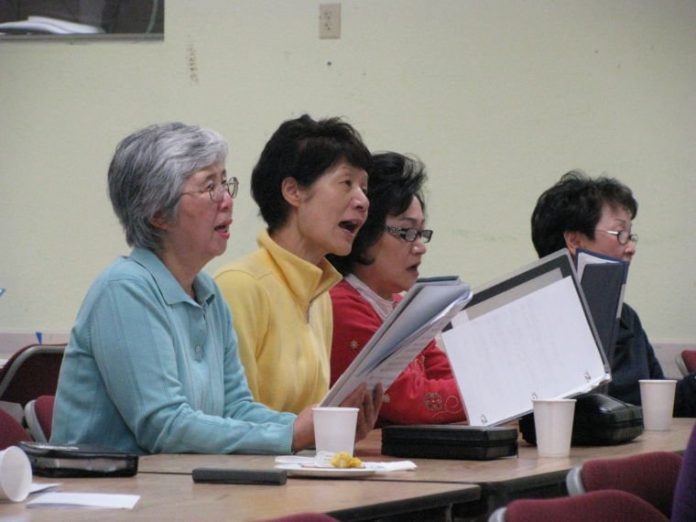
John Lehman is as busy now in his retirement as he ever was during his career as a corporate entrepreneur and executive. He currently directs an ambitious program called “Senior New Ways.” The visitation branch of this program has grown from six to 22 volunteers since last year.
The purpose of the program is to promote the dignity and respect for elders in care centers, mainly in assisted living and skilled nursing homes. The residents in these care homes suffer greatly from the effects of isolation and high levels of depression.
Lehman himself checks in with 500 residents per month at care homes throughout Santa Clara County.
He said that of the women who receive visitation through this program, only 10 to 15 percent have visits from a family member or friend. It is worse for the men, of whom John visits 220.
“I am the only visitor they ever have,” John says.
There are 180 care homes in Santa Clara County, and Lehman estimates the Senior New Ways Program is visiting 5 percent of them. He would like to increase that percentage. With the help of a part-time administrator hired in February, Project Director Lehman plans to recruit, train and certify 50 new volunteer visitors.
A short visit is time enough to ask how someone is, tell a joke, play a song for them, and let that person know someone cares. Lehman has noted that when the staff in these care homes see that someone is interacting with a resident, the care for that resident often improves.
Volunteers tell jokes, use music therapy and play old favorite songs on iPods for the seniors. They visit twice a month, for 45 minutes or longer.
Volunteers plan to expand the program to include more legacy building activities (making photo albums, scrapbooks, etc.). Volunteers have helped seniors make audio and video recordings of their personal histories, and these are being submitted to historical societies in the cities in which residents live.
Lehman uses his collection of 400,000 songs from 1920 to 1990 to help provide music therapy for seniors. He has found music to be really helpful with improving memory, so he has developed a Music Therapy Kit that he hopes to market in the future that can be used at home or in care homes by others to provide memory help.
Lehman visits adult daycare centers to do music therapy with seniors in three cities. And as of Sept. 15, a care home in Campbell has decided to take over funding the music therapy program themselves because they clearly see such improvement in the seniors who attend twice a week.
I am particularly interested in the Senior New Ways program because I serve on the Beulah Grant Fund Committee, which provides funds specifically for the improved quality of life for seniors. Lehman applied to our committee to request funding for 2014. The United Methodist Women of Gilroy is one of the groups supporting the work of this grant fund. Mr. Lehman has also applied for grants from Microsoft and Skype to provide equipment to each of the 10 care facilities currently being served by the Senior New Ways volunteers. Stay tuned to hear what the outcome will be.
Meanwhile, the USC Alzheimer’s Disease Research Center has assigned a PhD student to do formal testing at one of the care homes. Her dissertation will be on the impact of music on the aging mind and is expected to further expand our knowledge regarding the music and memory connection.
Thirty-seven residents have now begun to talk about their lives, careers, activities and travel. Those residents used to never respond with more than just “yes” or “no.” But even when a person can no longer carry on a conversation, he or she can still sing.
“We press the ‘go’ button, and everyone in the room starts singing,” Lehman described of what happens when he plays a song from the past in a group setting. “Studies show that whatever music you heard in high school is forever stored in the brain’s memory.”
“What we do is a mission that is attractive to our donors but doesn’t make them stand up and cheer,” Lehman said. “But we see seniors who were silent begin to engage in their surroundings once again. Dignity is what this whole thing is about.
“When we played ‘As Time Goes By’ from ‘Casablanca,’ this one senior Japanese elder who had been silent suddenly spoke,” said Lehman as he gave an example of the kind of responses he has been experiencing from seniors to the gift of individual care and attention. “‘You know,’” the man said, ‘I was in the war.’ And he began telling about his experiences for the first time, ever.”
Lehman paused.
“This guy was in the dark…and now he’s in the light.”
Seniors who benefit from the Beulah Grant Fund enjoy singing together in a volunteer program promoting greater quality of life for the aging population in Santa Clara County.












